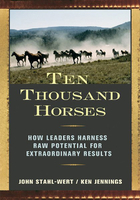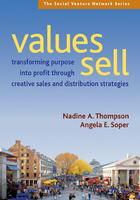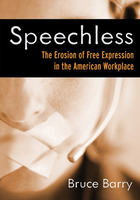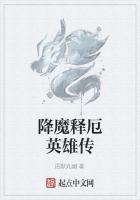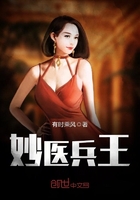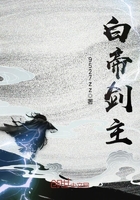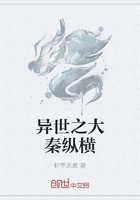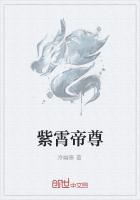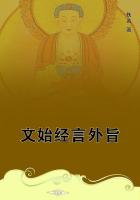IT cannot be discovered in what age of the world Britain first became a scene of human habitation. There is nothing in all history, no written record of any kind, to yield us any information concerning the original possessors of the land.
But the history of the early Britons, though it was never written, may be read. A curious history it is; and the way in which the materials of it have been gathered and put together is a fine example of the triumphs of patient thought. The historian of other periods finds his materials in books, in written records and documents. The materials for the history of this period have been found on waste moors and in deep mosses, in caves and on hill, under ancient burial mounds andcairns,lochs.
by the margins of rivers and on the beds of drainedHere, for instance, is an ancient boat, found a few years since on the south bank of the Clyde, when excavations were being made for the purpose of enlarging the harbour of Glasgow. It is of oak, not planked or built, but hewn out of the trunk of a single tree. The hollow has been made with fire, as the marks still show. Within it, when it was discovered, there lay an axe-head of stone.
Now, that fire-hollowed boat and stone axe tell their storyas plainly as a printed book. The savage on the shores of the Pacific cuts a groove in the bark round the root of the tree of which he intends to form his canoe. Into this groove he puts burning embers till it is charred to some depth. Nexthe deepens the groove by hewing out the charred wood with his stone hatchet. Then he applies the fire again; and so on, until, by the alternate use of fire and axe, the tree is brought to the ground. By the same process it is hollowed out, and shaped into a canoe. The ancient boat-maker of the Clyde had used exactly such a method of forming his little vessel. The stone axe, brought to light after untold ages, bears mute but expressive witness that its owner was a savage.
The axe with which the ancient Briton hollowed his canoe, served him also as a weapon in battle. Under a large cairn, on a moor in the south of Scotland, a stone coffin of very rude workmanship was found. It contained the skeleton of a man of uncommon size. One of the arms had been almost severed from the shoulder. A fragment of very hard stone was sticking in the shattered bone. That blow had been struck with a stone axe. When the victor, after the fight, looked at his bloody weapon, he saw that a splinter had broken from its edge.
Thousands of years passed, the cairn of the dead was opened, and that splinter was found in the bone of the once mighty arm which the axe had all but hewn away. What a curious tale to be told by a single splinter of stone!
On yonder lea field the
STONE AXES
ploughman turns over the grassy sward. At the furrow"s end, as he breathes his horses for a moment and looks at his work, his eye is caught by some object sticking in the upturned mould. He picks it up. It is a barbed arrow-head, neatly chipped out of yellow flint. How came it there? It is no elf-arrow, shot by the fairies. It was once, when tied to a reed with a sinew or a strip of skin, an arrow in the quiver of an ancient British savage hunting the deer.
There are spots where the flint arrow-heads have been found in such numbers as to show that the barbarian tribes had met there in battle. Spear-heads, too, and knives of flint, have been dug up from time to time in various parts. The ancient race who employed such weapons must have existed before the use of iron, or any other metal, was known.
That period when the rude inhabitants of a country were ignorant of metals, and formed their tools and weapons of stone, is called the Stone Period.
Had this ancient race any ides of religion and a future state? We shall see. Here is an earthen mound, heaped over the grave of some chief. When dug into, it is found to contain a rude stone coffin. In the coffin with the skeleton are flint arrow- heads, a spear-head, also of flint, and perhaps the stone head of a battle-axe, the wooden portions of these weapons having long since mouldered away.
Now we know that the savage expects to go after death to the happy hunting-grounds, and to follow again the warpath. His implements of war and the chase are therefore buried with him, that he may start up fully equipped in the new state of being. His favourite horse or dog, and perhaps his favourite attendants, are laid beside his grave, that at his rising he may appear in a manner fitting his rank. The contents of the burial- mound unmistakably proclaim that the men of long-forgotten ages had the same rude idea of a future state which the Red Indian still has.
In all probability, this ancient race occupied the country, with unchanging habits and with little or no progress, for many centuries. At length, however, the elements of a great change were introduced: the savage tribes became acquainted with the use of metals.
The introduction of metals is the first great stage in the history of civilization. Armed with an axe of metal, instead of the old axe of stone, the savage can go into the forest and cut down trees at will. He can split them, and hew them into planks. He needs not now to pile up overlapping blocks of stone to roof in his dark, underground abode. He can make a far more convenient dwelling of rough, axe-hewn boards.
He needs not now to hollow out a log-canoe, for his newtools have given him the power of building boats of plank. He can now increase the size of his little vessel, and thus make further and bolder ventures out to sea. The trees nearest his village fall first by his axe; but, year by year, he cuts his way deeper into the forest. The clearings extend, and the soil, which will be corn-land by-and-by, is laid open. He now can form a variety of tools suited to a variety of purposes. Newwants are created with the increased facility of meeting them. In a word, with the introduction of metal among a savage race, stationary till then, the march of improvement has begun.
The discovery of copper, silver, and gold, naturally takes place before the discovery of iron. The smelting of iron is an art much too difficult for the savage to master, till he has been long familiar with the working of the softer and easier metals. Accordingly, we find that the earliest metallic implements used in Britain were not of iron, but of bronze. Copper and tin are soft metals; but if a portion of tin is mixed with copper, the result is bronze, a metal harder than either of the two of which it is composed. Tools and weapons made of this metal are a great advance upon those made of stone or flint. Bronze, however, is but a poor substitute for iron and steel, and we maybe very sure that the people who made use of bronze tools knew nothing of iron.
That period during which the ancient inhabitants of a country, ignorant as yet of iron, made use of bronze tools and weapons, is called the Bronze Period .Let us again suppose ourselves present at the opening of an ancient British tomb. It is under a cairn heaped on the top of a hill which overlooks a wide tract of moorland. The stone coffin is very short-not over four feet in length. From the position of the bones, the body has evidently been placed in a sitting or folded posture. There are cups or bowls of pottery, one or more. There is a bronze sword, but it has been broken in two before it was laid beside its owner in his long rest. And what is that which glitters among the warrior"s dust? It is an ornament of gold-a bracelet or a collar-which he had worn.
The skeleton of a dog is found beside the coffin; for thewarrior knew hunting-craft by lake and wood, and loved to The Bronze Period.-The ancient Britons probably learned the art of working in metals from the Tyrians and Carthaginians, who are known to have visited the coast of Cornwall, for supplies of tin, many years before the Christian era.
pursue his game with hound and bow. So they laid his four- footed favourite, which had licked his hand and followed his halloo, in his long home beside him.
Now observe the cup or bowl, which has contained drink or food-friendship"s last gift to the dead. This cup is very different from the unshapely hand-made and sundried pottery of the Stone Period. It has been rounded on a wheel. It is made of fine baked clay, and is neatly ornamented with a simple pattern. There has been progress, then, in the mechanical arts since the ruder and older time.
Let the broken sword next tell its story. The last honour paid to the buried warrior was to break his sword and lay it beside him, ere his companions-in-arms piled over him the memorial cairn. The warrior of the Stone Period was buried with axe, lance, and bow, in barbarian anticipation of warfare beyond the grave; but the warrior of the Bronze Period was laid in his narrow bed with his broken sword, in token of warfare accomplished and of expected rest. This speaks in no obscure language of some better and higher ideas which this ancient race had acquired.
- J. MACKENZIE
mouldered, wasted. obscure, dark. observe, notice. pattern, device.
ploughman, husbandman. posture, position. probability, likelihood. quiver, arrow-case.
QUESTIONS
Where are the materials for unwritten history found? How had the ancient boat found near Glasgow been hollowed out? What was found within it? For what purpose had the axe been used? Where is the same plan followed still? To what, then does the axe bear witness? For what other purpose did the axe serve the ancient Briton? How can yon show this? What other stone implements have been found? What is that period of history called? What shows that the ancient Britons believed in a future state? What is the first great stage in the history of civilization? What work does the introduction of metals enable the savage to improve? What metals are first discovered? Why? What is the period therefore called? How is bronze made? What is its character, compared with copper and tin? What are often found within coffins of the Bronze Period? What difference is observed in the cup, as compared with that of the Stone Period? What story does the broken sword tell?


